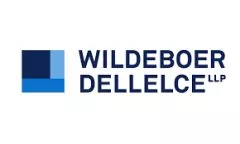

Founded over 25 years ago, Wildeboer Dellelce LLP is one of Canada's premier business and corporate finance transactional law firms. With approximately 50 legal professionals, the firm works across all industries including financial services, real estate, technology, biotechnology, industrial and consumer products, mining and natural resources, fintech, and cannabis.
Harmonized sales tax ("HST") of 13% is imposed upon every taxable supply (i.e., sale) of property or services in Ontario, including commercial real estate
Canada Tax

Harmonized sales tax ("HST") of 13% is imposed upon every taxable supply (i.e., sale) of property or services in Ontario, including commercial real estate.
For commercial real estate, an exception 1 applies where a party making a taxable supply of commercial real property is not required to collect HST so long as the purchaser is an HST registrant. The registrant purchaser is responsible for assessing and directly remitting the HST on the acquisition to the Canada Revenue Agency. The purchaser then typically claims input tax credits ("ITCs") to offset the HST payable and will not be required to remit amounts for HST.
Standard practice in the sale of commercial real property is for a vendor to obtain a certificate from the purchaser confirming that it is acquiring the property on its own behalf. The purchaser will also provide warranties with respect to registrant status, self-assessment, tax remittance, and applicable indemnities.
The application of HST to real property transactions can be complex and highly fact-specific. There can be considerably different results depending on the nature of the property as well as its previous ownership and use. This complexity is particularly applicable to transactions involving new or substantially renovated residential and multi-residential property, and conversions between commercial and residential uses.
The purchase of a 'residential complex', being a multi-residential property that is not constructed by the vendor, is generally an 'exempt supply' and therefore not subject to HST. This is relevant for mixed-use properties, where the portion of the property containing residential units is deemed to be a residential complex for the purposes of computing HST and claiming ITCs. Suppliers engaged in making exempt supplies are generally not eligible to claim ITCs.
The purchase of vacant undeveloped land (including farmland) is typically treated the same as any other supply of commercial real property. However, the acquisition of vacant land may be exempt from HST in certain situations, such as personal use recreational property or lands acquired from charitable organizations. These exemptions are very fact specific as there are often narrow distinctions between farmland, used residential property and personal use recreational property.
With respect to commercial leases, landlords must collect and remit HST on all rents (including operating costs and realty taxes) and are generally entitled to claim ITCs for all HST paid on expenditures in their commercial activities.
As the consequences of HST non-compliance can be sizeable in the form of payment of 13% of the value of the subject transaction, it is recommended that both purchasers and vendors take precautions to protect themselves from potential liability.
For a Purchaser:
The application of HST to real property transactions is highly technical and fact specific. Expert advice is strongly recommended for all transactions involving any unique features, changes in property use or multiple parties.
Footnotes
1 See subsection 221(2)(b) of the Excise Tax Act (the "ETA")
2 The Canada Revenue Agency's GST/HST Online Web Registry allows parties to verify an HST registrant's status as of a specified date.
The content of this article is intended to provide a general guide to the subject matter. Specialist advice should be sought about your specific circumstances.